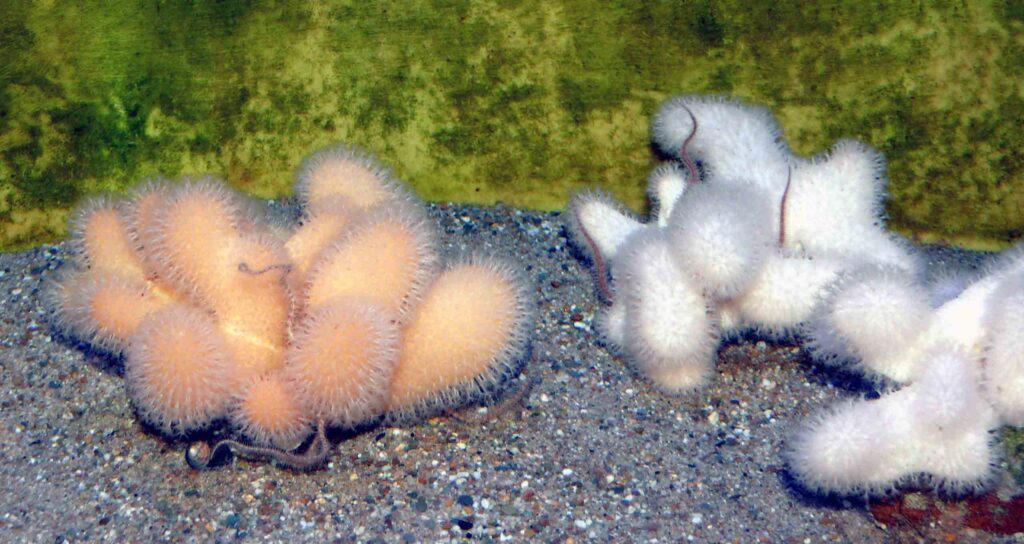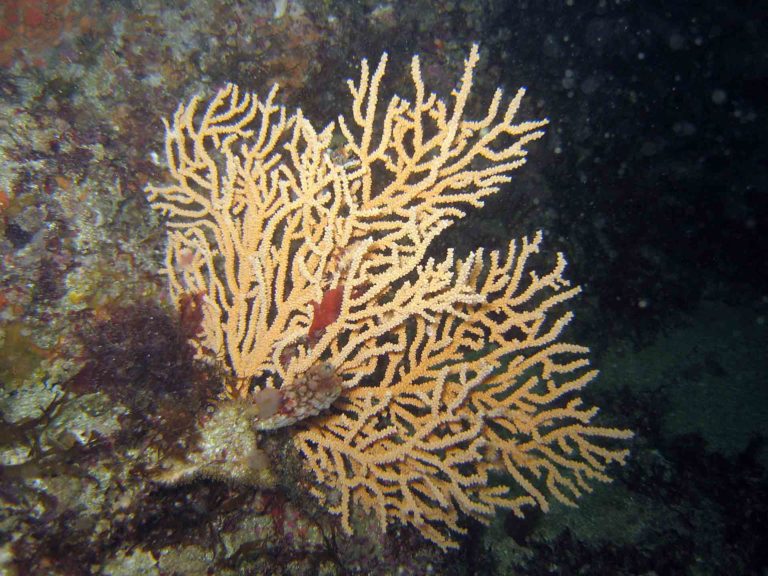UK soft corals will be resilient to climate change, predict marine biologists at Exeter University – which has also reported a breakthrough this month by using artificial intelligence to successfully interpret the “song” of coral reefs.
Far from being eradicated, the iconic pink sea fan (Eunicella verrucosa) is expected to expand its range north around UK and other coasts as global temperatures rise, say the scientists in a new study. Their findings could be used to identify priority areas for protecting the coral.
The octocoral species lives in shallow waters from north-west Ireland and south-west England and Wales to the western Mediterranean. Classified as Vulnerable worldwide, it is listed as a Species of Principal Importance in England and Wales.
“We built models to predict the current and future [2081-2100] habitat of pink sea fans across an area covering the Bay of Biscay, the British Isles and southern Norway,” said lead author Dr Tom Jenkins. “The model predictions revealed current areas of suitable habitat beyond the current northern range limits of the pink sea fan, in areas where colonies have not yet been observed.
“It’s not clear why pink sea fans have not yet colonised these areas. Possible barriers include insufficient dispersal of their larvae and high competition between species for space and resources.”
The team predicted that existing habitat across south-west Britain, the Channel Islands and north-west France would continue to suit the species over the next 60-80 years, by which time it was likely to be spreading northwards.
An overall decrease in suitable habitat in the southern portion of the study area was also predicted for another octocoral more familiar to scuba divers, dead man’s fingers (Alcyonium digitatum) – but again with an accompanying increase in the northern part of the species’ range.

Octocorals add complexity to reef systems and support marine biodiversity, especially when they form dense forests, and their condition is an indicator of ecosystem health.
“In a rapidly changing mosaic of habitats, some species – typically those favouring warmer conditions – may come out as short-term ‘winners’,” commented Dr Jamie Stevens. “How long these species can continue to expand and benefit in the face of accelerated warming remains to be seen.” The study is published in the journal PeerJ.
Machine ear to the reef
Another route to tracking reef health is artificial intelligence (AI), according to another scientific team at Exeter. They have trained a computer algorithm to distinguish between the sound of healthy and degraded reefs, using multiple recordings from Indonesia’s Mars Coral Reef Restoration Project.
The computer was then asked to analyse a host of new recordings – and succeeded in identifying reef health correctly 92% of the time.
Machine-learning could revolutionise the tracking of progress on reef-restoration projects, because visual and acoustic surveys of reefs typically now rely on labour-intensive methods such as regular surveys by scuba divers.
“Visual surveys are also limited by the fact that many reef creatures conceal themselves, or are active at night, while the complexity of reef sounds has made it difficult to identify reef health using individual recordings,” said lead author Ben Williams.
“Our findings show that a computer can pick up patterns that are undetectable to the human ear. It can tell us faster, and more accurately, how the reef is doing.” The study has just been published in Ecological Indicators.
Also on Divernet: Fish Return To Restored Indonesian Reef

